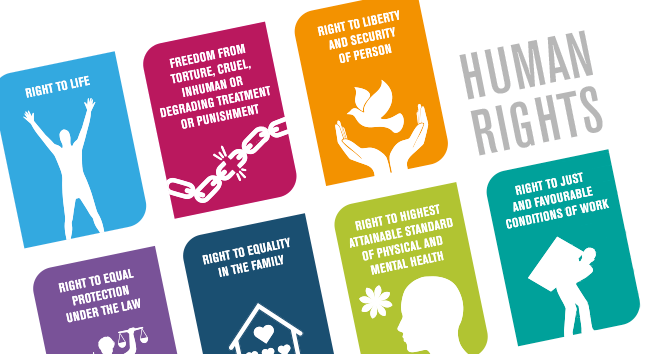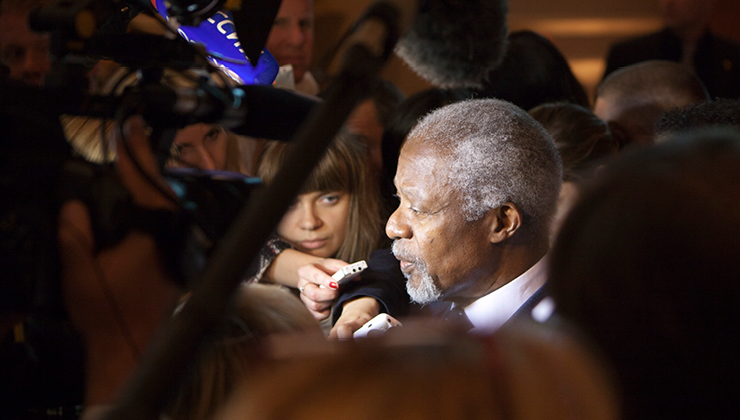In response to the acquittal of Ched Evans on charges of rape, Lisa Gormley reflects on the UK government’s approach to ensuring women’s right to protection of the law, and sets out how ratifying the Istanbul Convention would help achieve positive change.
The acquittal of Ched Evans has brought an important moment to reflect on where the UK government, Crown Prosecution Service and the judiciary are in ensuring women’s right to equal protection of the law.
The End Violence against Women Coalition and the Crown Prosecution Service have both made considered and thoughtful statements about the acquittal and the need to respect the ruling of the court. But there are two important principles which have to be considered for the sake of all rape victims – irrespective of whether they are boys, men, women or girls:
- The definition of rape and other forms of sexual violence must require mutual respect for each participant’s sexual autonomy and freely-given consent, which is not possible where a victim is incapacitated by alcohol or drugs;
- Each sexual act must be agreed to. No party can assume consent based on past behaviour with that individual or with anyone else: previous sexual history is not relevant for considering whether any party freely agreed to sexual contact on one particular occasion.
Both principles are already part of UK law, and have been for some considerable time.
Article 74 of the Sexual Offences Act 2003 defines consent as: “a person consents if he agrees by choice, and has the freedom and capacity to make that choice.” The case of John Worboys, the serial rapist who drugged at least 12 women (perhaps many more) shows how rapists can use the intoxication of victims to commit their crimes – and cover their tracks. How a person becomes intoxicated is irrelevant – what matters is taking advantage of a person who is unable to consent.
The use of previous sexual history evidence in rape trials promotes “twin myths”: that a complainant is promiscuous and likely therefore to agree to sex at any time; and also of low morals, who shouldn’t be believed. Research clearly shows that many victims are deterred from coming forward because they fear the use of these tactics. Vera Baird QC outlined compellingly how successive attempts have been made by Parliament to ensure that such evidence cannot be brought before courts, citing a case in which Lord Steyn, from the Supreme Court said: “Questioning and evidence about the complainant’s sexual experience with other men … are almost always irrelevant to the issue whether the complainant consented to sexual intercourse on the occasion alleged in the indictment or to her credibility.”
Why, then, did Ched Evans’ appeal against conviction succeed, and the re-trial end in acquittal?
The answer is the persistence of rape myths and a failure to uphold consistently the right of women and girls to autonomy over their own bodies – myths that are believed by some members of the judiciary and also in wider society.
This is a cultural question: but one where the state has power to do more to ensure equality and dignity for women.
This is also a legal and political question: for the past five years, parliamentarians and women’s organisations have called on the UK government to ratify the Istanbul Convention (the Council of Europe Convention on preventing and combating violence against women and domestic violence). It was signed by the UK government on 8 June 2012, but will not come into legal effect until it is ratified – and for reasons which are not clear, the UK government has been dragging its feet. Reflecting cross-party support for ratification of the Istanbul Convention, Dr Eilidh Whiteford MP will present a Private Members Bill to progress to ratification, which will be debated on 16 December 2016.
Why will the Istanbul Convention make a difference?
Article 14 of the Istanbul Convention requires that all children are educated, “on equality between women and men, non-stereotyped gender roles, mutual respect, non-violence conflict resolution in interpersonal relationships, gender-based violence against women and the right to personal integrity, adapted to the evolving capacity of learners, in formal curricula and at all levels of education.”
This will necessarily mean compulsory comprehensive sexuality education, which is an obvious first step in building a generation which understands how to show respect for another person’s physical and mental integrity. These are messages which can be transmitted clearly and accessibly for anyone, for example, through the simple comparison between offering another person a choice about whether to have a cup of tea, or to engage in sexual contacts.
This most basic requirement for all children to have access to important and life-changing knowledge and skills was rejected by the UK government a matter of months ago.
Article 15 of the Istanbul Convention requires that all professionals working with survivors of gender-based violence, including rape, are trained on “the prevention and detection of such violence, equality between women and men, the needs and rights of victims, as well as on how to prevent secondary victimisation.”
What is perhaps most surprising in the Ched Evans case is the different interpretations of professionals in the criminal justice system on the issue of previous sexual history evidence, and what is appropriate proof of a crime. While everyone is entitled to the presumption of innocence until they are proved to be guilty beyond reasonable doubt, sometimes the experiences of victims shows that in some courts, the burden of proof is beyond unreasonable doubt. In the case of Bemba, the first rape case at the International Criminal Court, Trial Chamber III reflected that (paragraph 216):
“The reasonable doubt standard in criminal law cannot consist in imaginary or frivolous doubt based on empathy or prejudice. It must be based on logic and common sense, and have a rational link to the evidence, lack of evidence or inconsistencies in the evidence.”
The Savile case, Operation Yewtree and similar cases have marked a change towards fairer treatment for victims of sexual violence, whether they are girls, boys, men or women. But still, as the End Violence against Women Coalition pointed out, the majority of victims are still sold short.
What the Istanbul Convention promises is not just training and education: it also requires comprehensive policies to prevent and address all forms of violence against women (Article 7) and coordination of all state agencies – including the judiciary, the Crown Prosecution Service, the police, the Criminal Cases Review Commission – to ensure a holistic response to all victims (Article 10). It requires expert advice from civil society organisations to ensure implementation of best practices (Article 9). Most importantly, it requires the gathering of data on the extent of the problem of gender-based violence, including rape and sexual violence, so that the state can make an adequate response informed by the realities of the extent of the problem (Article 11). Financial and human resources to ensure that what is required is implemented in practice is required by Article 8.
Not least, the Istanbul Convention would require specialist support services for victims (Article 22 and Article 25) and protection “from intimidation, retaliation and repeat victimisation” and effective measures to protect their privacy (Article 56). The Ched Evans case has led to catastrophe for the woman involved: what she has experienced should never be repeated.
The views, thoughts and opinions expressed in this blog post are those of the author(s) only, and do not reflect LSE’s or those of the LSE Centre for Women, Peace and Security.
Photo by Jordhan Madec on Unsplash





